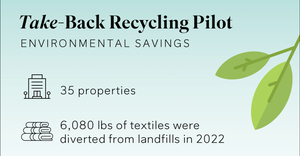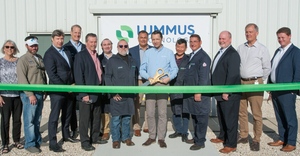A federal judge has at least temporarily thwarted New Jersey's attempts to regulate rail-yard waste-handling facilities. In February, U.S. District Court Judge Katherine S. Hayden ruled that federal law exempts the sites from state oversight.
The National Solid Waste Management Association (NSWMA) and the Solid Waste Association of North America (SWANA) do not believe that the sites and others like them in the Northeast should be exempt from state and local oversight. The facilities have become more prevalent as communities in the Northeast have begun shipping their garbage to out-of-state landfills. Waste is brought to the sites and placed on rail cars for shipment to disposal facilities.
The solid waste industry contends that the rail-yard sites are more than “transloading” facilities and that a significant amount of waste sorting and processing occurs at the sites. Therefore, the sites should be subject to the same state and local oversight applied to traditional solid waste facilities, the industry says.
Representatives of NSWMA and SWANA both voiced disagreement with Hayden's ruling. The decision caused “great concern and alarm,” says Steve Changaris, manager of NSWMA's Northeast Region. “But, at the same time, it's a single decision by one judge in one case.”
“The case was wrongly decided, on the facts and as a matter of law,” says Barry Shanoff, general counsel for SWANA.
A spokesman for New York Susquehanna and Western Railway Corp. (NYS&WR), the railroad that owns the sites in question in the lawsuit, told The Record Newspaper, “We are delighted with the court's decision that the state regulations are preempted by federal law. We have committed substantial resources in upgrading these facilities over the past year and a half that this litigation has been pending.”
New Jersey officials have said the state will appeal the ruling.
In late 2004, New Jersey implemented regulations governing operations at the facilities. The regulations mandated that, among other things, the sites undertake steps to control the spread of dust and contain wastewater.
The next summer, New Jersey fined NYS&WR $2.5 million for violations that the state said had occurred at five rail-yard waste sites that the railroad owns in North Bergen, N.J. The railroad immediately filed suit against the state.
In her ruling, Hayden decided that a longtime federal law exempting railroads and their facilities from state and local oversight preempted New Jersey's regulations. Congress established the exemption after concluding that having to adhere to different regulations in different jurisdictions would hamper the creation of a nationwide railroad infrastructure. (Barry Shanoff's “Legal Lode” column in the April edition of Waste Age will present a detailed examination of Hayden's ruling.)
Despite Hayden's decision, waste industry officials are working to bring rail-yard waste-handling facilities under state and local purview. NSWMA and SWANA have petitioned the federal Surface Transportation Board (STB) to extend local and state governments jurisdiction over the sites. STB's decision is pending.
The associations also have lobbied federal legislators to address the issue. In the previous session of Congress, U.S. Sen. Frank Lautenberg, D-N.J., and then-U.S. Sen. Jon Corzine, D-N.J., introduced the Solid Waste Environmental Regulation Clarification Affecting Railroads Act of 2005. The bill was sent to the Senate's Commerce, Science and Transportation Committee, but the committee never passed it on to the full Senate for a vote. Similar legislation may be introduced in the current session of Congress.
Organizations that have joined SWANA and NSWMA in lobbying STB and federal legislators include the National Governors Association and the U.S. Conference of Mayors.
Changaris describes Hayden's recent ruling as “another salvo in a many-round fight.”
“We're in it for the long haul, excuse the pun,” Changaris adds.
About the Author(s)
You May Also Like




